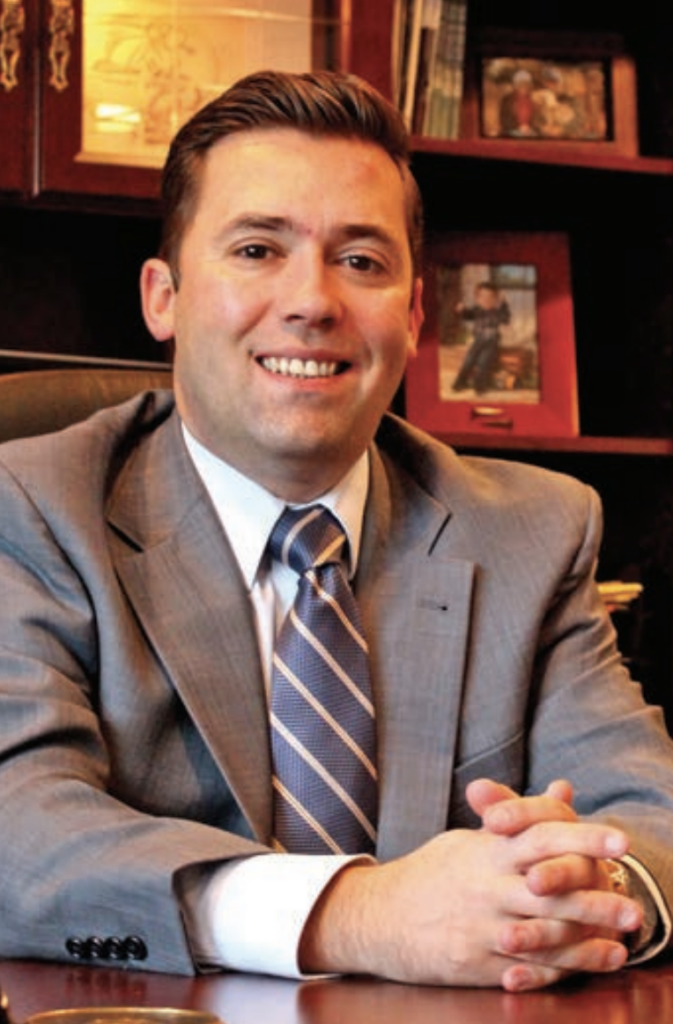Advice for young conservatives
A long veteran of conservative causes, Twin Cities lawyer counsels young activists to read
A conservative activist almost since the day that he arrived on the Bethel campus in 2000 from his parents’ home in Williston, North Dakota, Jake Grassel says today’s campus conservatives must prepare diligently for a much more hostile campus environment than during the long tenure in which he led Minnesota’s college Republicans.
Grassel’s initial interest on the Bethel campus was as a member of its varsity hockey team, but he was quickly drawn into the 2000 presidential campaign between George W. Bush and Al Gore. He immediately joined Bethel’s College Republicans, and eventually became state chairman. He also became a regional vice chair with the College Republican National Committee (CRNC), even taking a semester off to work as a field staffer for the CRNC during the 2002 election.
His tenure as state chair, he remembers, included mostly amiable working relationships with the college Democrats and other liberal organizations on campus. “We knew who they were. A lot of them were our friends,” he says, “and we were able to have respectful conversations. At the time, it seemed like we all wanted a better future for America. It was just that we differed on what that better future looked like, and how to get there.”
Today’s campus relationships aren’t quite so cordial, he says. “The general make-up of students today—how they perceive the world, how they perceive life—is much different than it was when I was on campus in early 2000s.” He’s not sure why, maybe different attitudes about parenting, or the fact that there’s increasing divisiveness in national politics. But it also has something to do with the attitudes of professors, who no longer allow opposing views to be heard and respected.
“The campus culture now is one that seeks to indoctrinate, and literally change those views that students had entering campus,” he says.
Success in that environment, he says, requires that young conservatives go into it prepared. “They need to be well read. They need to understand precisely what they believe and why they believe it. They need to be armed with the knowledge to fight back,” Grassel says.
Grassel suggests a daily dose of the Wall Street Journal, Drudge, and the Huffington Post, “just to see what’s out there on both sides,” he says. “And I’m a Power Line guy,” the website founded by American Experiment President John Hinderaker.
He also warns against the social media-inspired practice of getting news in 140 character bursts. “We’re really becoming a headline culture,” he says. “Even linking to a news story, as we’ve all kind of known, the first few paragraphs of a news story are what’s generally read.” You’ll see that anytime you read the comments that people will leave online following articles, he says. “They often comment only about the first three paragraphs.”
Today, Grassel is an attorney at Plymouth-based Howse & Thompson, P.A. He chose law school, he says, thinking it would be a good training ground for a career in public policy work. “I do a little bit of public policy work,” he says, “but that’s not my primary practice. I tend to do my public policy work as volunteer activity,” which he fulfills in part as an active member of American Experiment’s Young Leadership Council (YLC).
He says he is investing time and energy in the YLC because it gets people “away from just the everyday politics and more towards getting people talking about policy, which I think is extremely important,” he says. He estimates he meets a half dozen new people at every event. “The organization’s growing. It’s having, I think it’s having a good effect in our community. People are leaving our events excited to do more, and wanting to get more involved—and actually thinking and talking about policy.”

Jake Grassel, a member of American Experiment’s Young Leadership Council, is an attorney at Plymouth-based Howse & Thompson, P.A.